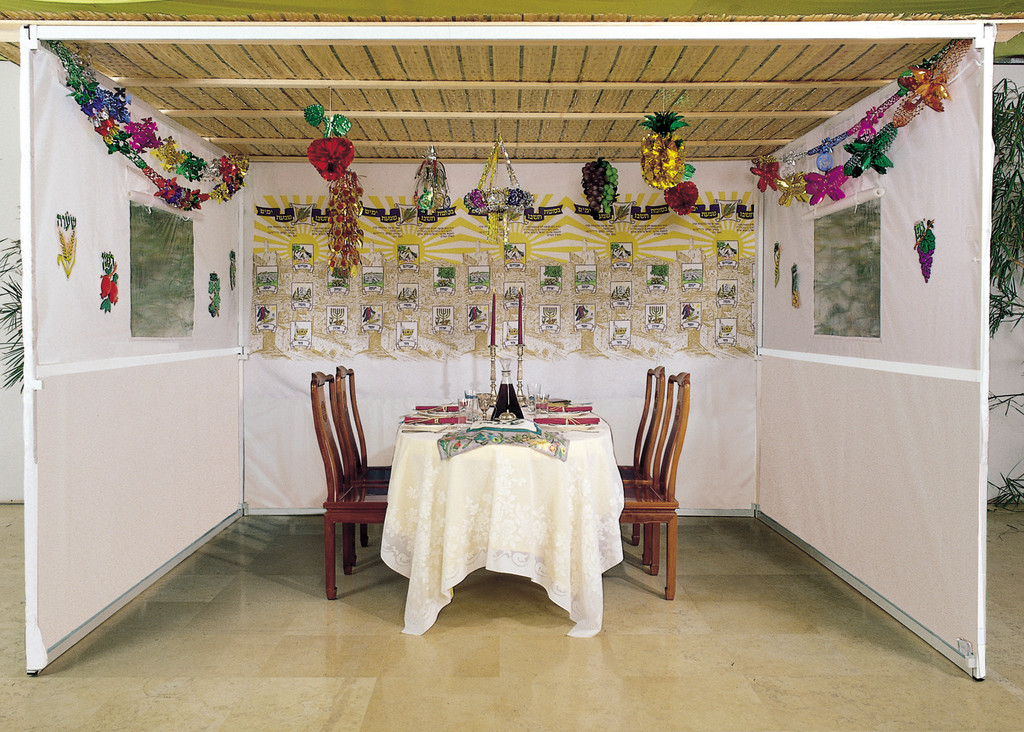Torah Columns
1740 results total, viewing 1681 - 1690
|
In the context of a discussion about what materials could be used for building a sukkah, the Gemara Sukkah (11b) raises a debate between Rabbi Eliezer and Rabbi Akiva regarding of what material the original sukkah G-d described in Vayikra 23:43 was made.
The verse says “[You will sit in the sukkah because] I had the Israelites live in huts (sukkahs) when I brought them out of Egypt.”
more
By Rabbi Avi Billet
|
10/12/11
|
|
On the surface, the mitzvah of dwelling in the succah appears to be quite straightforward. The Rambam formulates the mitzvah in the following fashion:
What is the mitzvah of dwelling in the succah? One should eat and drink and dwell in the succah for the entire seven-day period both at night and during the day in exactly the same manner that he dwells in his house during the other days of the year. Throughout the entire seven-day period a person should treat his house as a temporary dwelling and his succah as his permanent dwelling.
more
By Rabbi David Etengoff
|
10/12/11
|
|
A number of years ago, I struck up a friendship over Pesach week with a Holocaust survivor, a former inmate of the Janowska work camp and Auschwitz. Towards the end of the week I summoned up the nerve to ask him if there was anything in particular that stood out in his mind as the reason he had survived. Without hesitation, he responded: “It was one mitzvah; the Sukkos I spent in Auschwitz.
more
By Rabbi Binny Freedman
|
10/12/11
|
|
If you would have collected a group of world-renowned military strategists on Oct. 6 1973, and asked them, at 4p.m. Israel time, for a prognosis on the status of the events unfolding on the Golan heights that afternoon, they would have probably told you Israel should be preparing the airport and shipping ports for a massive evacuation.
more
By Rabbi Binny Freedman
|
10/7/11
|
|
The exact origins of Kol Nidrei are lost in the sands of time. One of the earliest sources regarding our present practice is found in a responsum of Rav Natronai Gaon. It is quoted in the commentary of Rabbeinu Asher ben Yechiel, known as the “Rosh,” to Talmud Bavli, Yoma, 8:28:
more
By Rabbi David Etengoff
|
10/6/11
|
|
In our tradition, the High Holidays are viewed as a time period when all of humanity, not just its Jews, are judged for the coming year.
more
By Rabbi Avi Billet
|
10/6/11
|
|
More than what he was saying, it was his face that caught my attention. Flicking on the television absent-mindedly as I was getting dressed for a wedding, I came across the middle of a program on what, after a moment, I realized was a story from the Second Lebanon War.
more
By Rabbi Binny Freedman
|
9/28/11
|
|
The Talmud in Kiddushin (40b) has a fascinating passage describing the merits process, which is quite applicable to this time of year.
more
By Rabbi Avi Billet
|
9/28/11
|
|
Editor’s note: With a double parsha this week and the calendar edging closer towards Rosh Hashana, we present a second Torah column. Rabbi Etengoff is dedicating the following dvar Torah in memory of his sister-in-law, Ruchama Rivka Sondra, and the refuah shlaimah of Yosef Shmuel ben Miriam.
more
By Rabbi David Etengoff
|
9/22/11
|
|
There is a mystical idea, which suggests, that hidden within every fire of destruction is the spark of redemption. Such, for example, was the case on Aug. 3, 1492, which was also the Ninth of Av, the anniversary of the destruction of both Temples in Jerusalem. On that day, the Inquisition was imposed on the 250,000 Spanish Jews, faced with the choice of expulsion, conversion or death.
more
By Rabbi Binny Freedman
|
9/22/11
|

 50.0°,
Mostly Cloudy
50.0°,
Mostly Cloudy 




